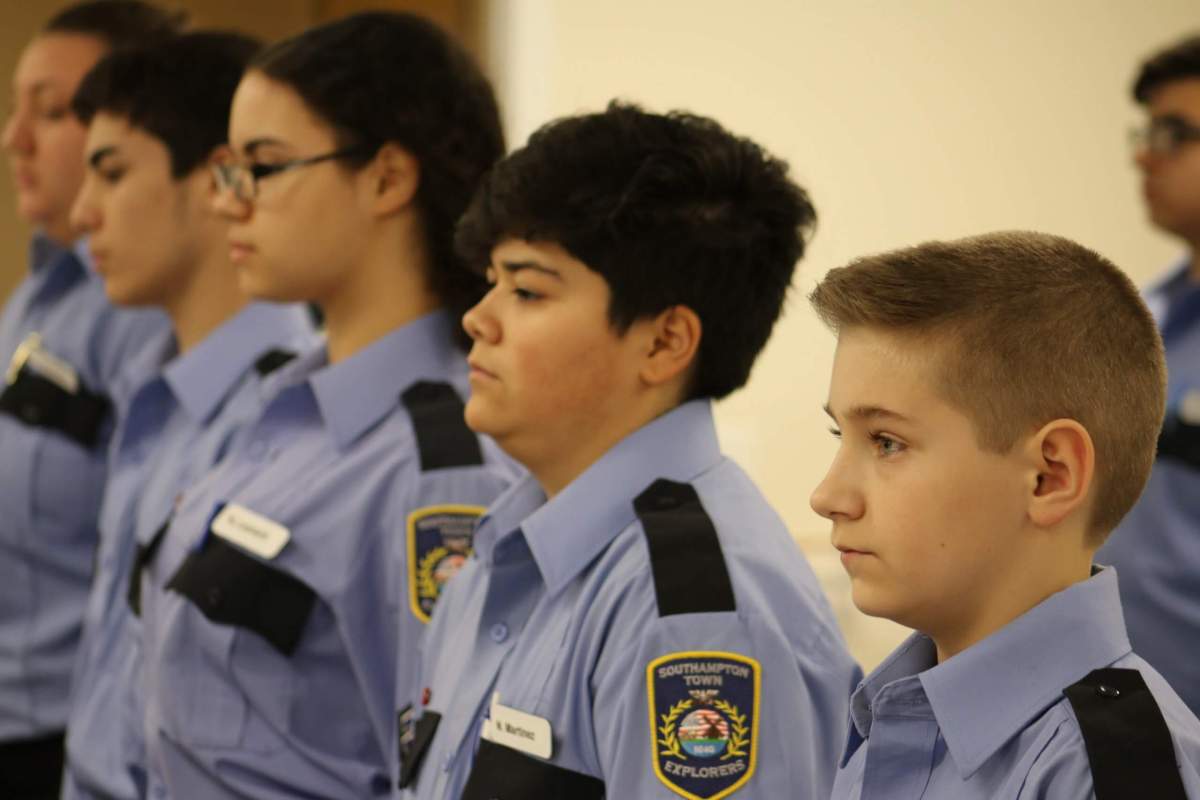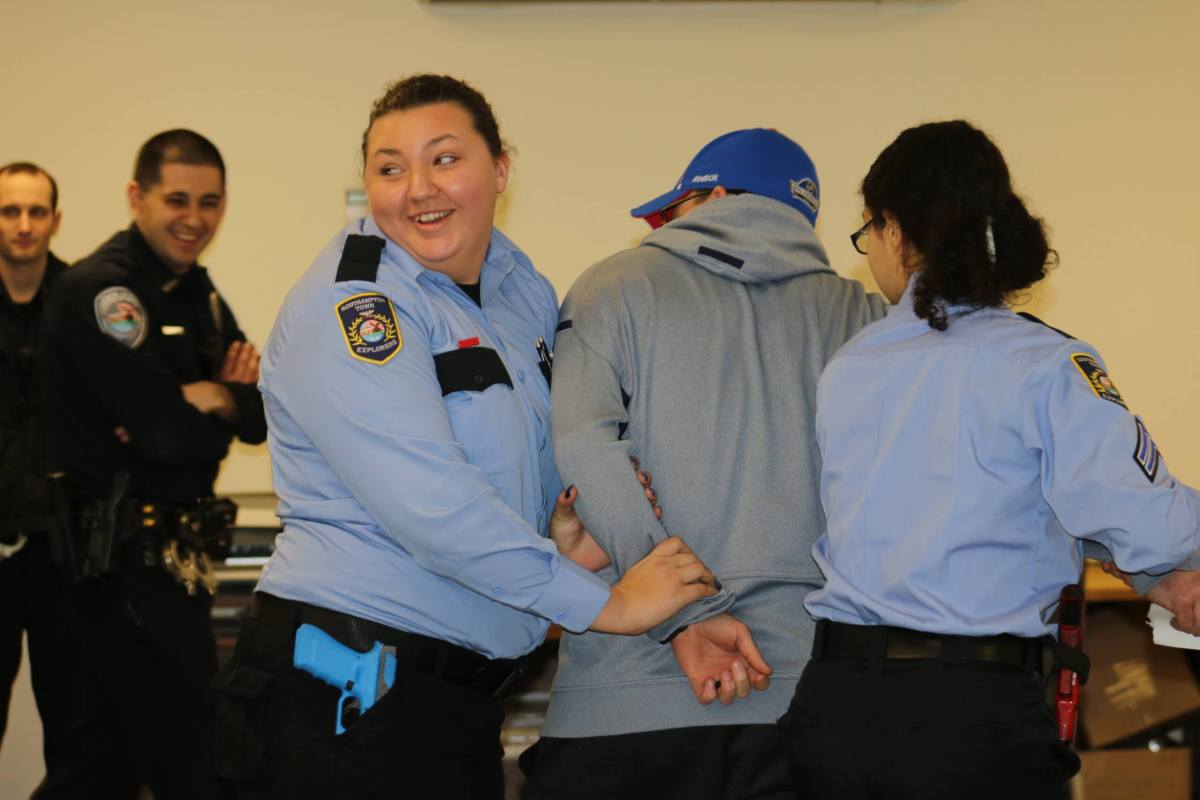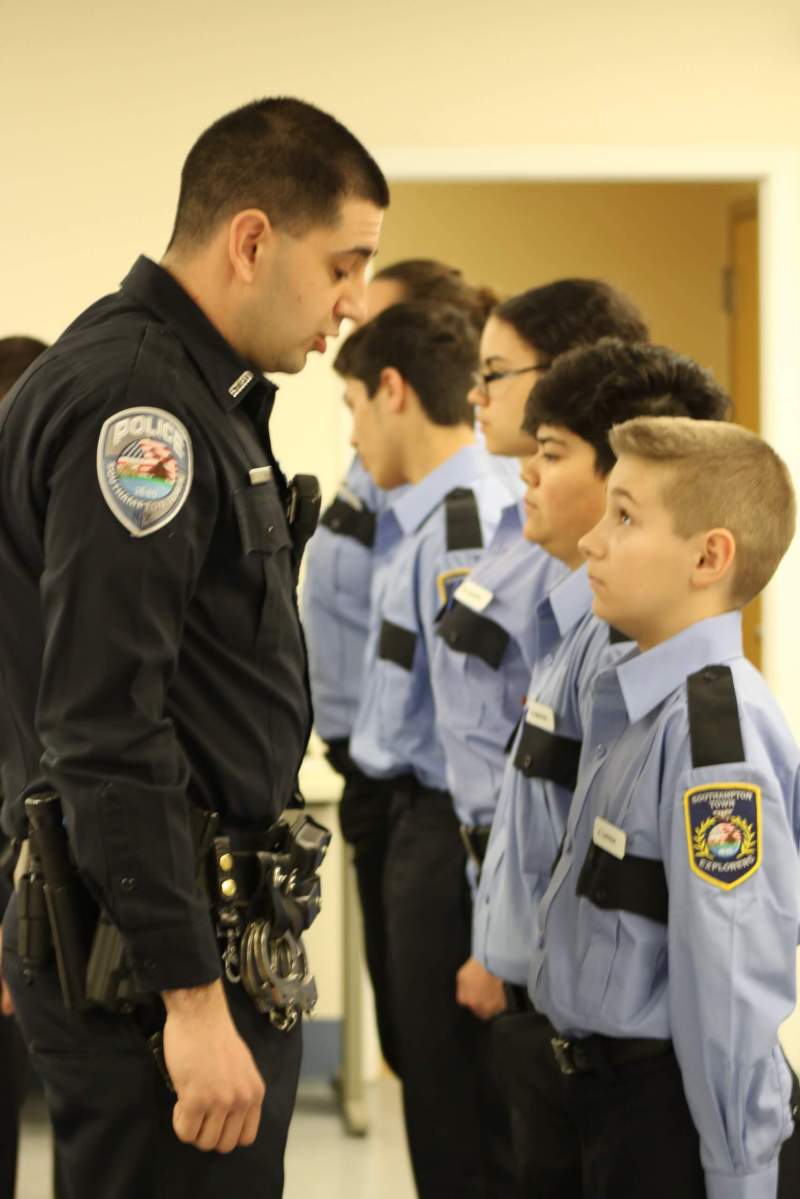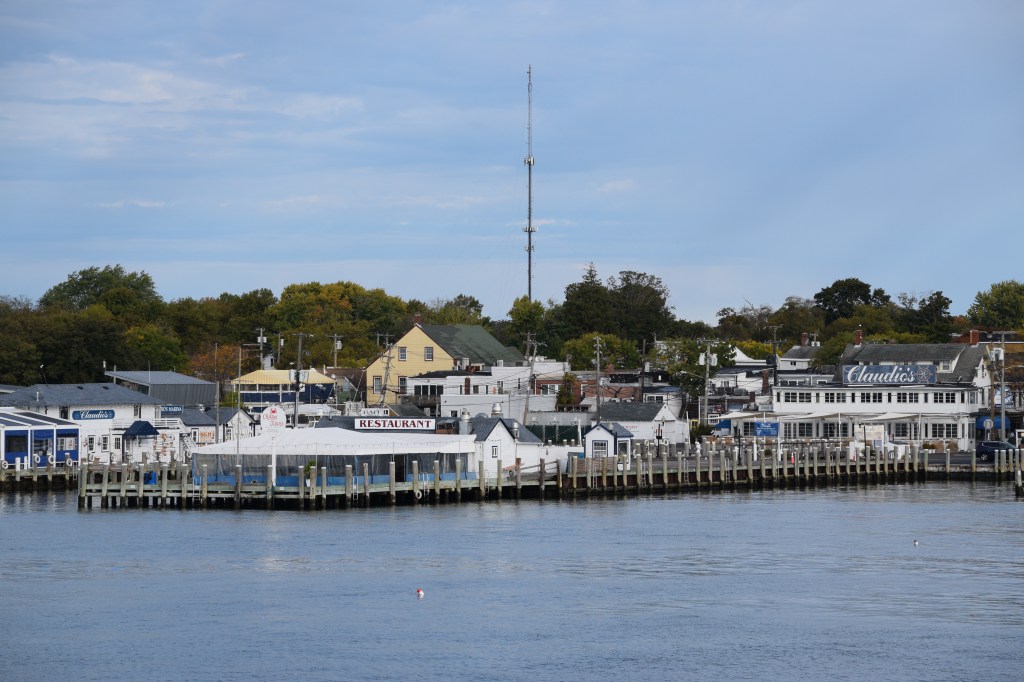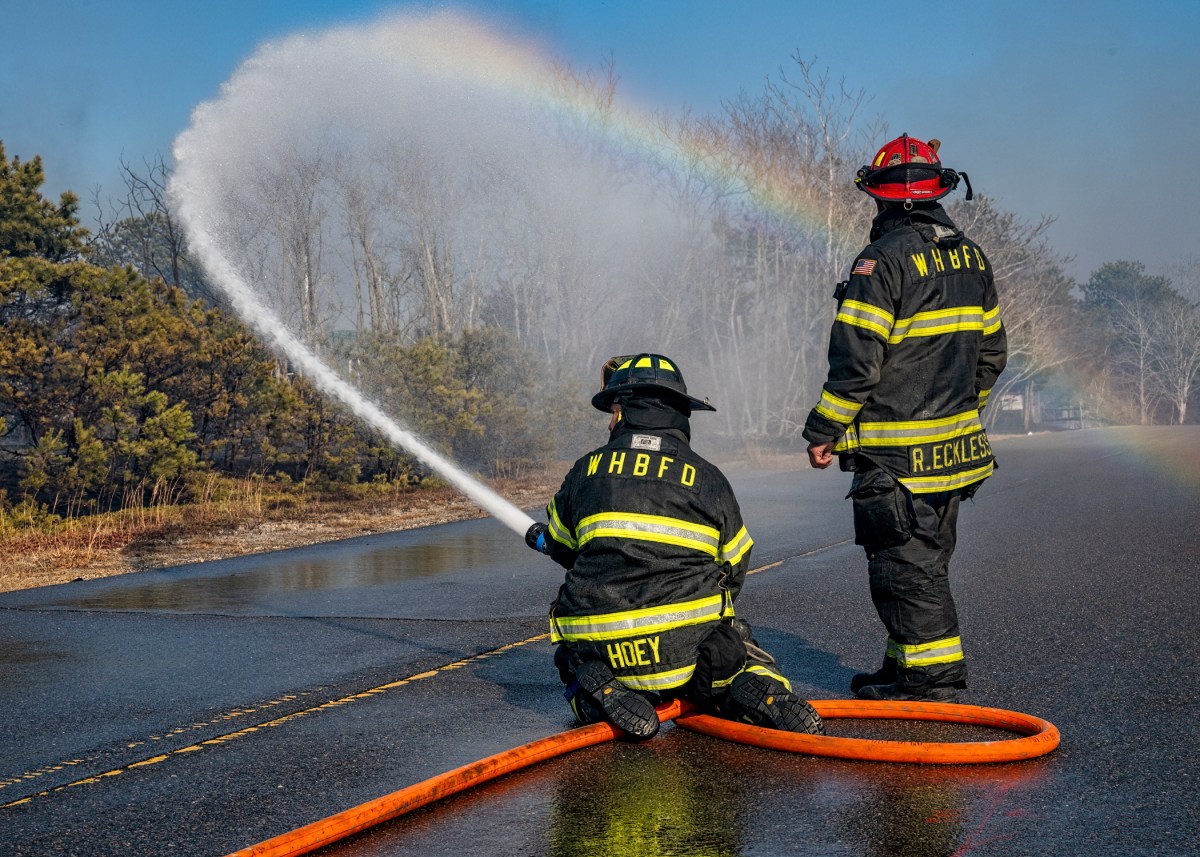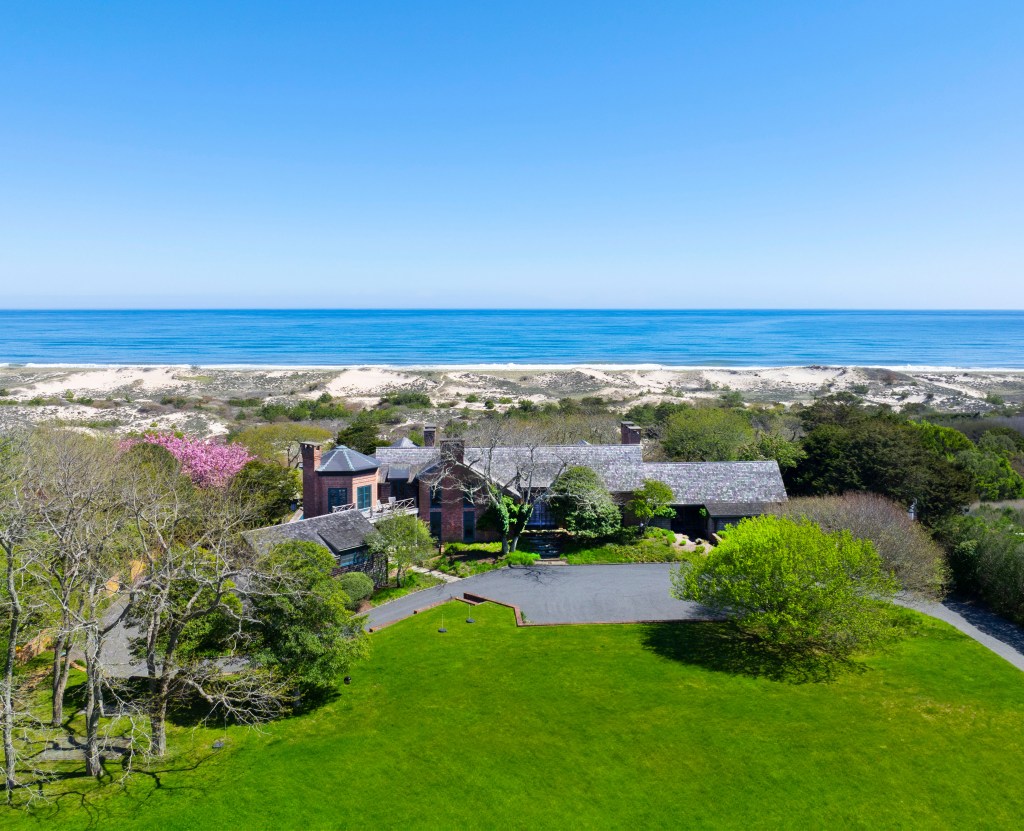Police Explorers Lead Way
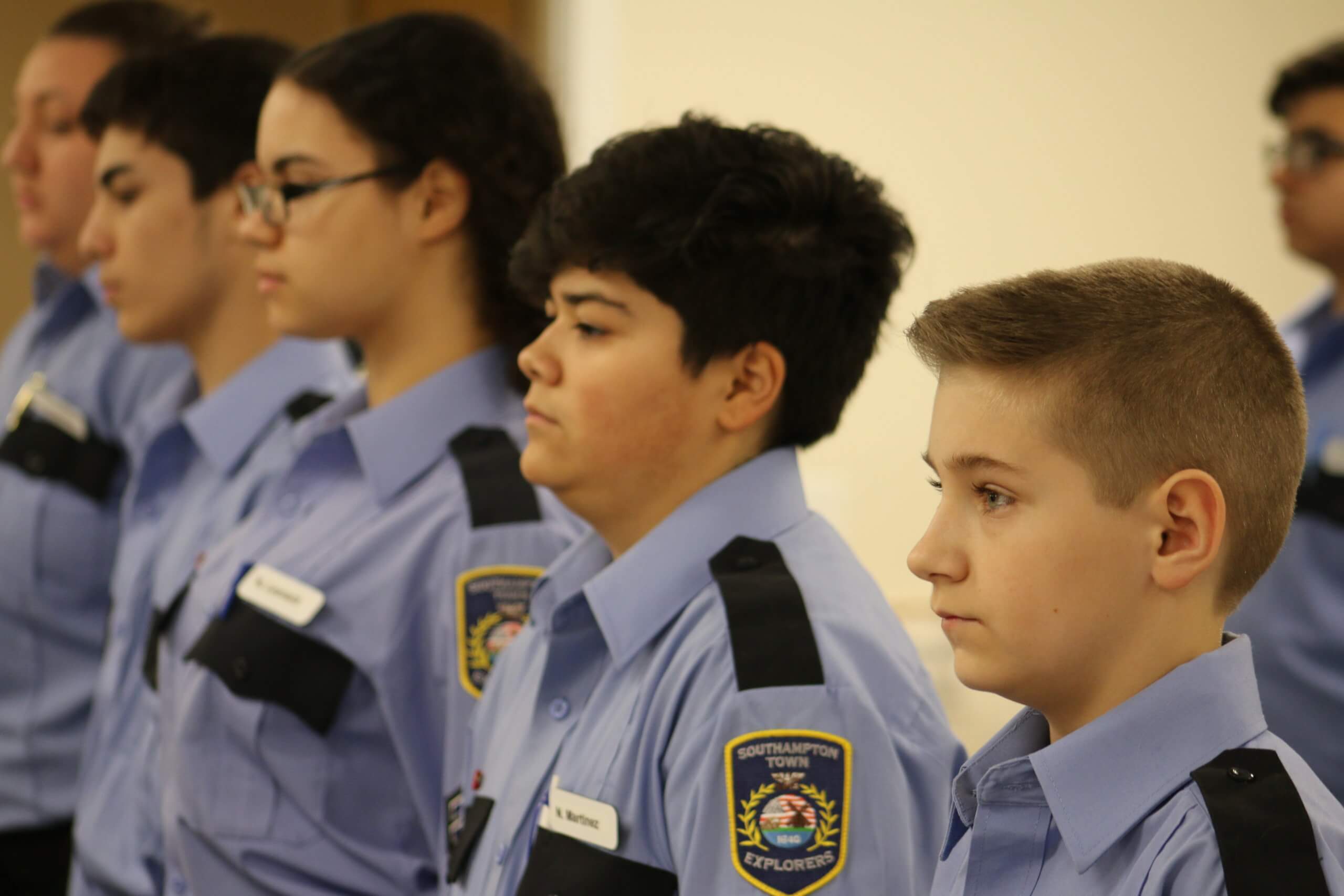
Young cadets used their hands to flatten their Navy blue ties against their light blue dress shirts, smoothed their hair, stiffened their bodies, and gulped air before sucking in their stomachs in an effort to appear taller inside Southampton Town Police headquarters in Hampton Bays one recent Monday night.
The neat looking not so dirty dozen or so stepped into formation — two single lines, one behind the other — as they waited for uniform inspection as part of the department’s Police Explorer program. The youngsters’ display of self control is in vast contrast between the seemingly rag-tag group of chatting teens who ambled into the building with uniforms dangling off hangers just 10 minutes before.
It’s called discipline.
“Here, we start preparing them for life,” said program advisor Lt. Susan Ralph of the explorers, who range from 12 to 18 years old. As part of the co-ed program, which is run under a charter of the
Boy Scouts of America, the explorers meet twice monthly for two hours to learn about law enforcement, and the steps they need to take in order to have successful careers.
What they learn will come in handy whether they choose a career in law enforcement or not, Ralph said.
To be part of the group, which now has roughly about 30 members, candidates have to write an essay about why they want to join and then take part in an interview with not only Ralph, but senior members of the program.
Eighteen-year-old Haley Hernandez, an East Hampton resident in her freshman year at Suffolk County Community College in Riverhead, said the program has enabled her to make new friends, hone her skills about the backgrounds of complex laws used by police, and prepared her for the police academy.
“It gives you step into the academy,” said Hernandez, a founding member of the explorers, noting her advisors expect tasks to be performed the way they would in the academy and make them aware of the consequences of failure. “It just makes you ready for your own experience later.”
Just like full-fledged cops, the explorers have a similar rank structure — lieutenants, sergeants, and corporals — with senior members of the program allowed a say as to who gets in and who gets kicked out. Under Ralph’s oversight, the explorers can also dole out discipline such as restricting members from field trips for absences, and have the power of expulsion if there are too many unexcused absences.
“Although the young people who join are interested in law enforcement, [Police Explorers] opens the door to help them, aiding in decision-making, preparing for life, and preparing to go out into the job field,” said Ralph.
The explorers study topics in law enforcement such as the use of force, the laws of arrest, and constitutional law, often touching on contemporary examples of those elements by discussing recent shootings such as the fatal shooting of Michael Brown in Ferguson, Missouri.
‘They do training the same way the cops do,” Ralph said. “The same things we learn, we expose them to.”
Putting theory into practice, the explorers participate in role play scenarios in which their police officer advisors often play bad guys with fake weapons. Monday’s session delved into use of force and how far an officer can go with a suspect and the levels of restraint that can be used.
For C.J. Slovensky of Manorville it was a valuable lesson to be learned. He and his partner unwittingly confronted an armed man, who got the drop on him and wounded him with a fake gun.
“I sort of knew he probably had something, but I wasn’t sure and I wasn’t going to freak out because it was just a scenario, but if it was real life, I probably would have drawn my gun sooner,” he said.
In hindsight, Slovensky said he would have ordered the man to get on his knees and to put his hands behind his back to protect himself much sooner.
Though the role play scenarios can take a serious turn, Hernandez said the scenarios are not scary because the explorers have a bond with their instructors.
“It’s scarier imagining [the scenario] could happen,” she said.
The program is kind of like a mini civilian police academy, but with an addition of trying to guide the youngsters away from drug use and gang affiliation, according to Police Chief Steven Skrynecki. At the same time, the program aims to make the explorers stronger, empowers them to stand up as individuals and make the right choices when they are experiencing peer pressure, he said.
“It’s about leadership, decision-making, and child development,” he said.
The program provides the essentials from the ground up, starting with grooming skills by teaching the explorers to keep their appearance clean and tidy — combed hair, crisp uniforms, and minimal accessories for girls. Similar to the academy, sloppy buns on girls don’t fly in the explorers.
“If you push somebody to do better, nine times out of 10, they are going to do better,” said Police Officer Katie White, a former military drill instructor who has been teaching the explorers about proper hygiene, and was on hand to perform an inspection. “I feel like the minimum standard is not enough.”
It’s a skill that the explorers will use for the rest of their lives no matter what field they go into, according to White.
“If you are okay at a job, and you don’t want to push yourself, that is exactly where you will stay,” she said. “You are not going to continue to be more successful, so you need to challenge yourself to be more successful. In our job, we are supposed to be perfect.”
“If you are just meeting the minimum standard, it’s not enough,” she said.
Communicating and public speaking are also part of training.
Advisor Police Officer Christopher Florea said sitting the explorers down and making sure they have proper eye contact and don’t fidget with their hands when speaking is an important aspect of the program because it’s a problem with young people. “We concentrate a lot on public speaking because they use a lot of filler words, like uh and um, every other word,” he said. “Every other sentence they will say it 10 times. We just teach them to take a moment, think about what they want to say. They are going to sound a lot more educated when it comes time for them to interview, even if they don’t want to go into law enforcement.”
The explorers support themselves by holding fundraisers for their uniforms, which cost close to $200 per member, and their field trips which often take them upisland to visit other explorer groups at one of the various precincts of the Suffolk County Police Department. They have also travelled to hear speakers such as U.S. Immigration and Customs Enforcement agents, and just this past September visited the 9/11 memorial in Manhattan.
“Many of them were either not born or were an infant, so they have no idea about the memorial and it was wonderful to watch them because they now understand what that day meant,” said Ralph.
Charity and community involvement is another aspect of the program. In the past the explorers have organized a coat drive for the needy and have also been used as ambassadors in the community.
“We might have a crime problem in a retail area where people are breaking into cars,” said Skrynecki, noting the explorers will then “go around and distribute flyers that give tips on how to secure cars especially around the holidays when people are leaving cars open.”
In December, the explorers helped with the department’s Shop With A Cop program, which pairs underprivileged children with a police officer who helps them shop for clothes and toys around the holidays.
Soon, they will be integrated into ceremonial events at the police department, Skrynecki said.
Southampton’s Police Explorers is the only group of its kind on the East End, drawing members from both forks and as far away as East Hampton. Ralph would like to see it expand with more youngsters participating.
“I can tell you we started off with about 18 kids and they all came in very quiet and not really talking to each other,” said Ralph. “And we have watched these kids become a family and really grow together.”
Ralph, who is the department’s community relations liaison, said she recognized there was a need for more youth programs when she was a rookie back in the 90s. “I was a part-time cop working in summertime, and I saw it,” she said. “There’s nothing for kids to do out here, and it’s been something that the department really didn’t get involved in.”
Ralph first approached the town board to allow her to start the Police Explorers program because she believed the police department needed “tentacles into the community” and “And I said, ‘You have to get in touch with the youth.’”
“The adult that is doing bad — they are already gone,” she said. “You have to get the kids young, so you can teach them. You have to teach them that there is more to life outside of Hampton Bays or Southampton, or the Twin Forks.”
peggy@indyeastend.com
